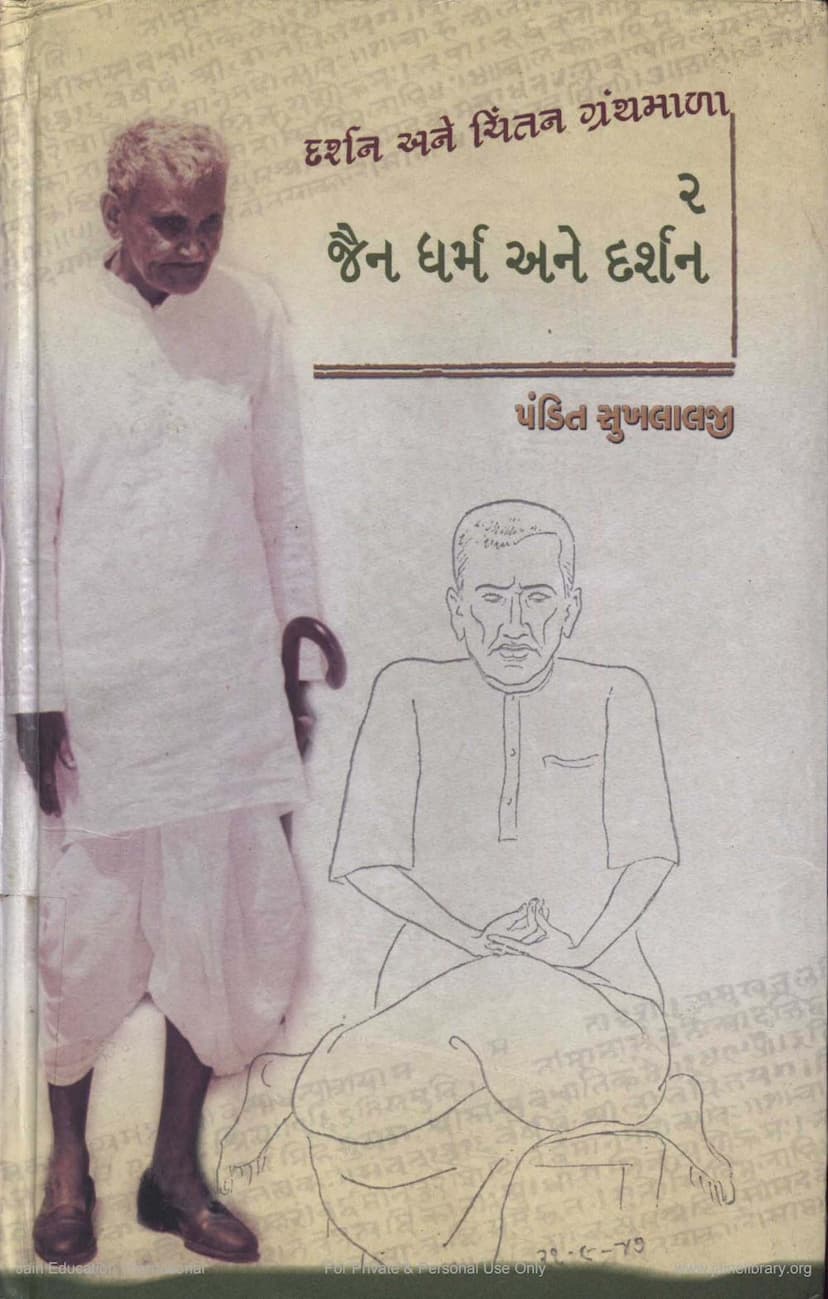Jain Dharma Ane Darshan
Added to library: September 2, 2025

Summary
This book, "Jain Dharma ane Darshan" (Jainism: Religion and Philosophy) by Pandit Sukhlal Sanghavi, published by Gurjar Granthratna Karyalay, is a comprehensive exploration of Jain philosophy and practices. The book is a collection of essays and lectures that delve into various aspects of Jainism, presented with Pandit Sukhlalji's characteristic depth, clarity, and intellectual rigor.
The book is structured into several sections, each focusing on a distinct area of Jain thought. Key themes and discussions covered include:
- The Importance of History: The book emphasizes the crucial role of history in understanding any discipline, including Jainism. It highlights the need for a systematic and objective study of Jain literature and philosophy, noting the significant contributions made by both Indian and foreign scholars.
- Tirthankaras and Jain Tradition: The text discusses the lineage of Tirthankaras, from the first Tirthankara Rishabhadeva to Lord Mahavir. It explores the historical context and the philosophical underpinnings of their teachings, particularly emphasizing the ancient origins and universal welfare principles of Jainism.
- Lord Mahavir's Teachings: Central to the book are the teachings of Lord Mahavir, particularly his emphasis on Ahimsa (non-violence), Aparigraha (non-possession), and Anekantavada (multiplicity of viewpoints). The author examines the profound impact of Mahavir's philosophy on the world and the enduring legacy of his teachings.
- Jain Principles in Practice: Pandit Sukhlalji critically analyzes the application of Jain principles in contemporary society, addressing issues like the shortcomings and strengths within the Jain tradition. He calls for a re-evaluation of outdated practices and encourages a more dynamic and relevant approach to spiritual and social engagement.
- Inter-religious Dialogue and Comparative Philosophy: The author advocates for a comparative study of Jainism with other Indian philosophical traditions like Buddhism and Vedic traditions. He highlights the shared values and distinct contributions of Jainism, particularly its emphasis on Syadvada and Anekantavada, as tools for understanding truth and fostering tolerance.
- The Significance of Festivals and Rituals: The book examines the deeper meaning behind Jain festivals like Paryushana, emphasizing their role in self-introspection, spiritual purification, and adherence to vows. It also discusses the importance of scriptural study and the need for making religious education accessible and engaging for the modern generation.
- The Nature of Reality and the Soul: The text delves into Jain metaphysics, exploring concepts like the soul (Jiva) and non-soul (Ajiva), their interactions, and the path to liberation (Moksha). The concept of Karma, its workings, and the means to overcome its bondage are also discussed.
- The Role of Asceticism and Householder Life: The book addresses the balance between the path of renunciation (asceticism) and the path of worldly life (householder life) within Jainism, discussing how both can lead to spiritual progress.
- The Importance of Education and Institutions: Pandit Sukhlalji stresses the need for well-structured educational institutions that foster intellectual curiosity, critical thinking, and a holistic understanding of Jainism, not just rote memorization.
- Critique of Modern Jain Practices: A significant portion of the book offers a critique of contemporary Jain practices, highlighting areas where rituals have become detached from their core philosophical meaning or where societal changes necessitate a reinterpretation of traditions. He calls for a move beyond mere ritualism towards genuine spiritual understanding and ethical conduct.
- The Essence of Jainism: Ultimately, the book aims to distill the essence of Jainism, which Pandit Sukhlalji views as a path to self-realization, characterized by equanimity, non-violence, and a profound respect for all life forms.
Pandit Sukhlal Sanghavi's writing style is noted for its depth, clarity, and systematic approach. He uses simple yet precise language to convey complex philosophical ideas, making them accessible to a wide audience. His work is highly regarded for its scholarly accuracy, intellectual honesty, and its commitment to promoting a deeper and more meaningful understanding of Jainism. The book serves as a valuable resource for anyone seeking to understand the philosophical depth and ethical underp innings of Jainism.